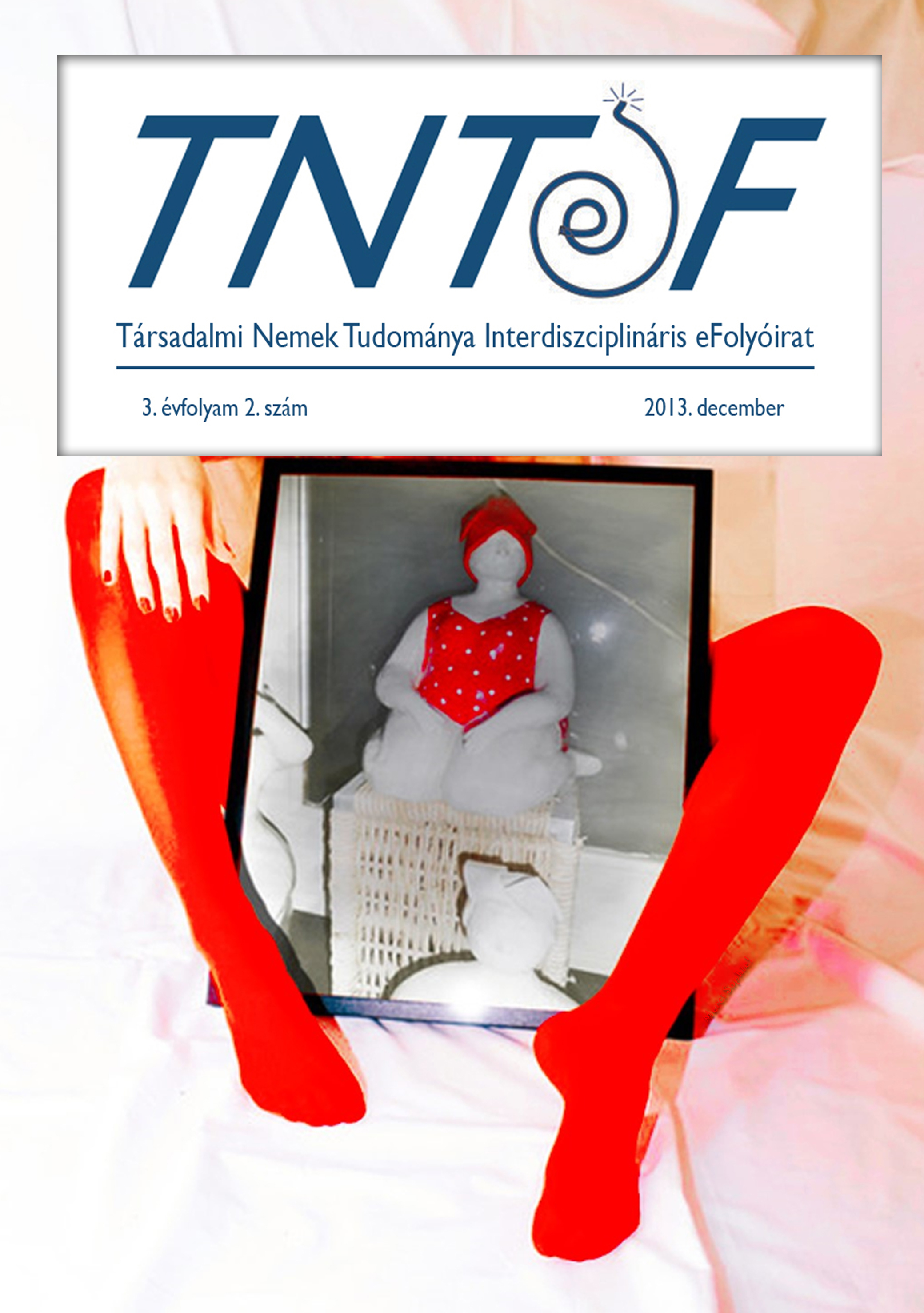Szexualitás, anyaság, fogyatékos női testek A feminista fogyatékosságtudomány első hazai kutatási eredményei
Main Article Content
Absztrakt
Tanulmányunk a testi fogyatékossággal élő nők helyzetével foglalkozik, magyar kontextusban. Vizsgálati eredményeink empirikus alapját Hernádi Ilona narratív interjúi képezik. Ezek, rövidre fogott elméleti alapozást követően, – amint az a jelen elemzés végére érve az olvasó számára is világossá válik –, egy konkrét narratíva új típusú, rizomatikus rekonstrukciójához vezetnek.
Article Details
Hogyan kell idézni
Hernádi, Ilona, és György Könczei. 2013. „Szexualitás, anyaság, fogyatékos női Testek: A Feminista fogyatékosságtudomány Első Hazai kutatási eredményei”. Társadalmi Nemek Tudománya Interdiszciplináris eFolyóirat 3 (2):17-34. https://ojs.bibl.u-szeged.hu/index.php/tntef/article/view/33695.
Folyóirat szám
Rovat
Tanulmányok

